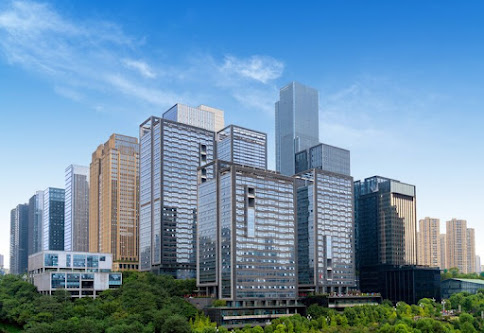A Beginner’s Guide to Commercial Real Estate in DC
Commercial real estate in Washington, DC, is a dynamic and lucrative market that offers numerous opportunities for investors, business owners, and developers. Known for its strong economy, diverse industries, and vibrant culture, DC’s commercial real estate sector continues to attract attention. For beginners, navigating this complex market can be daunting, but with the right knowledge, it becomes an accessible and rewarding endeavor.
In this guide, we’ll break down the essential aspects of commercial real estate in DC, including property types, market trends, key factors to consider, and tips for success.
Understanding Commercial Real Estate in DC
Commercial real estate (CRE) refers to properties used for business purposes. In DC, the sector includes a wide range of property types, each catering to different business needs:
1. Office Spaces
The city’s thriving economy, anchored by government agencies, nonprofits, law firms, and tech companies, makes office spaces a significant segment of commercial real estate in DC.
2. Retail Properties
DC is home to bustling retail corridors, from high-end shopping districts to community-based marketplaces. Retail properties include stores, restaurants, and service-oriented businesses.
3. Industrial Properties
Though less prominent than other sectors, industrial spaces in DC are vital for logistics, storage, and manufacturing, particularly in areas adjacent to the city.
4. Mixed-Use Developments
Mixed-use properties combine residential, retail, and office spaces, creating dynamic hubs that cater to the urban lifestyle DC is known for.
5. Specialty Properties
These include hotels, healthcare facilities, and educational institutions, all of which play unique roles in the city’s diverse economy.
Why DC’s Commercial Real Estate Market Stands Out
The commercial real estate market in DC has unique attributes that make it appealing:
- Economic Stability: As the nation’s capital, DC enjoys a strong and stable economy, bolstered by federal government activities and a steady influx of professionals.
- Diverse Industries: In addition to government-related enterprises, DC has a vibrant tech, education, healthcare, and hospitality sector.
- High Demand for Space: The city’s limited land availability ensures that commercial properties often retain high value.
Key Factors to Consider
When exploring commercial real estate in DC, keep the following in mind:
1. Location is Paramount
Location significantly impacts property value, tenant interest, and long-term profitability. Popular neighborhoods like Capitol Hill, Georgetown, and Dupont Circle offer diverse opportunities but vary in pricing and zoning.
2. Zoning Regulations
DC has strict zoning laws, so it’s essential to ensure that the property aligns with your intended use. Always review zoning codes before making a decision.
3. Market Trends
Understanding local market trends, such as emerging industries or shifting tenant preferences, can help you identify promising investment opportunities.
4. Accessibility and Amenities
Properties near public transportation, with parking options and modern amenities, tend to attract more tenants and higher rents.
5. Building Condition
Evaluate the property’s structural integrity and maintenance requirements. Older buildings in DC may require significant renovations to meet modern standards.
Steps to Get Started
1. Define Your Objectives
Are you looking to invest, lease, or develop? Clarifying your goals will help narrow your options in the competitive commercial real estate DC market.
2. Research the Market
Gather insights on property values, demand, and neighborhood dynamics. Online resources, local market reports, and professional consultations can provide valuable data.
3. Assemble a Team
Collaborate with experts, including real estate agents, attorneys, and financial advisors, who understand the intricacies of commercial real estate in DC.
4. Evaluate Financing Options
Explore different financing options and secure pre-approval to streamline the buying process. Ensure that your financial plan aligns with your investment strategy.
5. Conduct Due Diligence
Inspect properties thoroughly, review legal documentation, and confirm compliance with zoning laws and building codes.
Benefits of Investing in DC’s Commercial Real Estate
1. Long-Term Growth
The city’s robust economy and population growth contribute to a stable market with potential for long-term appreciation.
2. Diversified Opportunities
With a variety of property types and industries, DC offers opportunities for all kinds of investors, from first-timers to seasoned professionals.
3. Community Impact
Investing in commercial real estate can contribute to community development, revitalizing neighborhoods, and creating spaces for local businesses to thrive.
Tips for Success
- Stay Informed: Regularly monitor market trends and legislative changes affecting commercial real estate DC.
- Network: Build relationships with local stakeholders, including brokers, developers, and city officials.
- Think Long-Term: While quick gains can be tempting, focus on investments that offer sustained growth and stability.
Conclusion
Commercial real estate in DC presents a wealth of opportunities for those willing to navigate its complexities. By understanding the market, evaluating your options carefully, and seeking professional guidance, you can successfully invest in or manage properties in this vibrant city. Whether you’re aiming to secure a prime office space, establish a retail outlet, or develop mixed-use properties, DC’s commercial real estate market holds promise for beginners and experts alike.




Comments
Post a Comment